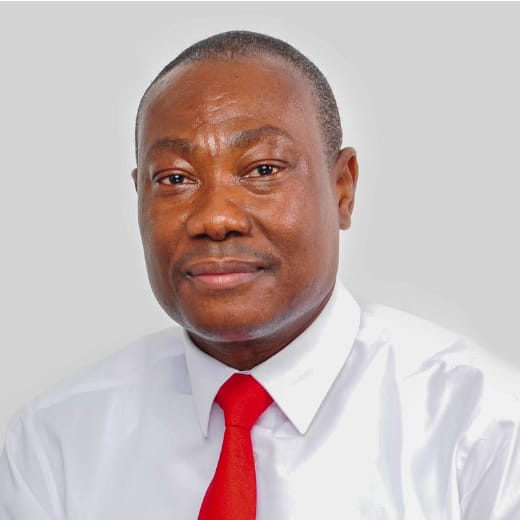By: Edwin Gogu
The Chief Executive Officer of the Minerals Commission, Mr. Martin Kwaku Ayisi, has stressed that the most effective solution to Ghana’s illegal small-scale mining (galamsey) challenge lies in identifying and designating suitable areas for small-scale miners to operate legally.
Speaking at the ninth phase of stakeholder engagements on the review of the 2014 Mining Policy and proposed legal amendments with the Ghana Journalists Association (GJA) in Peduase in the EasternRegion, Mr. Ayisi said about 90% of the solution to illegal mining depends on properly allocating and regulating mining areas.

“If we are able to identify and designate good areas, the problem is largely solved. Then you know who is mining where, you can regulate them properly, discourage the use of mercury and harmful chemicals, and ensure that the gold and revenues are properly accounted for,” he explained.
The CEO revealed that the Commission, in collaboration with the University of Mines and Technology (UMaT) and the Geological Survey Department, has already begun geological investigations in various blocks to create designated areas for small-scale miners. He emphasized the need to scale up these efforts due to the sheer number of people interested in the sector.
Mr. Ayisi also outlined major proposals under the ongoing policy and legal reforms. These include reducing the duration of mining leases and prospecting licenses, abolishing stabilization clauses in development agreements, and introducing compulsory community development agreements to ensure mining communities directly benefit from resource extraction.
“We don’t see why companies should hold leases for 30 years when most mines have a lifespan of 10–12 years. We also cannot allow prospecting licenses to be held in perpetuity. We want to change this so that areas can be freed up for small-scale miners. In addition, companies will now be required to set aside at least 1% of their annual revenue, not profit for community development agreements,” Mr. Ayisi said.
He clarified that the reforms are not aimed at abolishing small-scale mining, but rather at distinguishing between legal and illegal operators. According to him, lawful license holders will continue their operations under stricter regulations, while unlicensed miners will be supported to formalize their activities through cooperative mining schemes.
“Stopping small-scale mining altogether does not make sense. Many have lawfully obtained licenses and invested heavily. What we are doing is to step up regulation, formalize those outside the system, and introduce cooperative schemes to bring them under proper supervision,” he added.
Mr. Ayisi explained that the review of the 2014 Mining Policy and the nearly two-decade-old Minerals and Mining Act is meant to align Ghana’s mining governance with emerging global trends, national priorities, and community interests.
The engagement with the GJA, he noted, was to sensitize and educate the media to report accurately on the reforms, ensuring that the public is well informed about the sweeping changes taking place in the mining sector.

















